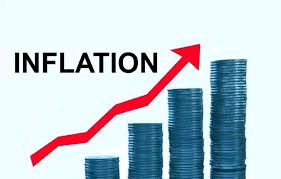Nigeria’s economic landscape faces a significant challenge as headline inflation surged to a staggering 24.08% in July 2023, according to data released by the National Bureau of Statistics (NBS). This alarming increase represents the highest recorded leap in the inflation rate throughout 2023, underscoring the mounting inflationary pressures on the nation’s economy.
The inflation rate had stood at 22.79% in June, marking a sudden and substantial escalation of 1.29 percentage points within a single month. This leap in the headline inflation rate paints a vivid picture of the economic turbulence and volatility that Nigeria is currently grappling with.
The NBS report indicates that the upward trajectory of inflation is impacting a wide array of consumer goods and services, leading to significant changes in the price index. As the cost of living continues to rise, Nigerian households are facing greater financial strain, and businesses are navigating increasingly challenging operating environments.
This surge in inflation further compounds the economic complexities that the country is facing, prompting policymakers to carefully assess and potentially adjust monetary policies to mitigate the impact. The higher inflation rate not only affects individual purchasing power but also has broader implications for economic stability and growth.
On a year-on-year basis, the July 2023 headline inflation rate has surged by a substantial 4.44% points compared to the same month in the preceding year. This underscores a concerning trend of escalating inflationary pressures over time, which can erode savings, disrupt investment decisions, and hinder overall economic progress.
The data release calls for a comprehensive assessment of Nigeria’s economic policies and strategies to address the root causes of this inflationary trend. As the government and relevant stakeholders evaluate potential interventions, a careful balance must be struck to ensure that the economy remains resilient and capable of weathering these challenging circumstances.
The impact of elevated inflation reaches far beyond statistical figures, affecting the daily lives of Nigerians. It is crucial for concerted efforts to be taken to stabilize prices, restore consumer confidence, and create an environment conducive to sustainable economic growth.










